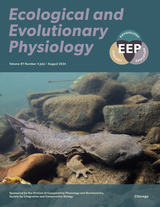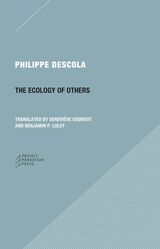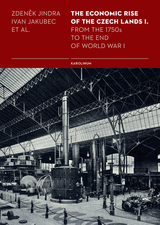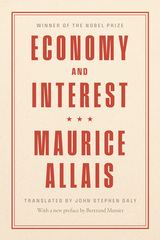4 books about Scott, Nora
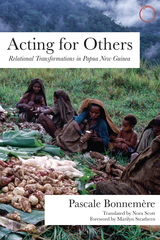
Acting for Others
Relational Transformations in Papua New Guinea
Pascale Bonnemère
HAU, 2018
For the Ankave of Papua New Guinea, men, unlike women, do not reach adulthood and become fathers simply by growing up and reproducing. What fathers—and by extension, men—actually are is a result of a series of relational transformations, operated in and by rituals in which men and women both perform complementary actions in separate spaces. Acting for Others is a tour de force in Melanesian ethnography, gender studies, and theories of ritual. Based on years of fieldwork conducted by the author and her husband and co-ethnographer, this book’s “double view” of the Ankave ritual cycle—from women in the village and from the men in the forest—is novel, provocative, and one of the most incisive analyses of the emergence of ideas of gender in Papua New Guinea since Marilyn Strathern’s The Gender of the Gift.
At the heart of Pascale Bonnemère’s argument is the idea that it is possible for genders to act for and upon one another, and to do so almost paradoxically, by limiting action through the obeying of taboos and other restrictions. With this first English translation by acclaimed French translator Nora Scott, accompanied by a foreword from Marilyn Strathern, Acting for Others brings the Ankave ritual world to new theoretical life, challenging how we think about mutual action, mutual being, and mutual life.
At the heart of Pascale Bonnemère’s argument is the idea that it is possible for genders to act for and upon one another, and to do so almost paradoxically, by limiting action through the obeying of taboos and other restrictions. With this first English translation by acclaimed French translator Nora Scott, accompanied by a foreword from Marilyn Strathern, Acting for Others brings the Ankave ritual world to new theoretical life, challenging how we think about mutual action, mutual being, and mutual life.
[more]
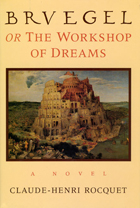
Bruegel, or the Workshop of Dreams
A Novel
Claude-Henri Rocquet
University of Chicago Press, 1991
Claude-Henri Rocquet—poet, playwright, and critic—has marshalled the full range of his talents to create a dazzling historical novel about the artist Peter Bruegel the Elder. To the few facts we have—Bruegel died in 1569 around the age of fifty; he lived in Antwerp and in Brussels; his work was much admired—Rocquet adds his own speculations on the sights, smells, and textures of Bruegel's world, on the artist's innermost feelings and intimate conversations, on his spiritual life and its possible translation on the artist's canvas.
[more]
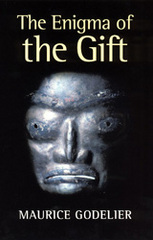
The Enigma of the Gift
Maurice Godelier
University of Chicago Press, 1998
When we think of giving gifts, we think of exchanging objects that carry with them economic or symbolic value. But is every valuable thing a potentially exchangeable item, whose value can be transferred? In The Enigma of the Gift, the distinguished French anthropologist Maurice Godelier reassesses the significance of gifts in social life by focusing on sacred objects, which are never exchanged despite the value they possess.
Beginning with an analysis of the seminal work of Marcel Mauss and Claude Lévi-Strass, and drawing on his own fieldwork in Melanesia, Godelier argues that traditional theories are flawed because they consider only exchangeable gifts. By explaining gift-giving in terms of sacred objects and the authoritative conferral of power associated with them, Godelier challenges both recent and traditional theories of gift-giving, provocatively refreshing a traditional debate.
Elegantly translated by Nora Scott, The Enigma of the Gift is at once a major theoretical contribution and an essential guide to the history of the theory of the gift.
Beginning with an analysis of the seminal work of Marcel Mauss and Claude Lévi-Strass, and drawing on his own fieldwork in Melanesia, Godelier argues that traditional theories are flawed because they consider only exchangeable gifts. By explaining gift-giving in terms of sacred objects and the authoritative conferral of power associated with them, Godelier challenges both recent and traditional theories of gift-giving, provocatively refreshing a traditional debate.
Elegantly translated by Nora Scott, The Enigma of the Gift is at once a major theoretical contribution and an essential guide to the history of the theory of the gift.
[more]

Who Killed Jules Crevaux?
Murder in the Bolivian Chaco
Isabelle Combès
HAU, 2023
The first book to explore the deaths of explorer Jules Crevaux and his crew from an Indigenous perspective.
In 1882, the celebrated French explorer Jules Crevaux and his crew were killed by Indigenous people in the Bolivian Chaco, a fiercely contested region on the border between Bolivia, Argentina, and Paraguay. The event sparked an international uproar. The scene of the crime was embroiled in clashes among various Indigenous peoples, rubber tappers, and missionaries. Official investigators sent from France and competing newspapers ended up mired in a morass of equivocal, ambiguous, false, and contradictory information.
To make sense of this event, Isabelle Combès is the first researcher to consult the local archives and to include the perspective of Indigenous peoples. In search of who killed Crevaux and why, Combès unearths the power struggles and social imaginaries behind the incident and its aftermath. Readers will find not only an engrossing story in these pages but also an exemplar of historical inquiry that questions the very nature of truth-telling.
In 1882, the celebrated French explorer Jules Crevaux and his crew were killed by Indigenous people in the Bolivian Chaco, a fiercely contested region on the border between Bolivia, Argentina, and Paraguay. The event sparked an international uproar. The scene of the crime was embroiled in clashes among various Indigenous peoples, rubber tappers, and missionaries. Official investigators sent from France and competing newspapers ended up mired in a morass of equivocal, ambiguous, false, and contradictory information.
To make sense of this event, Isabelle Combès is the first researcher to consult the local archives and to include the perspective of Indigenous peoples. In search of who killed Crevaux and why, Combès unearths the power struggles and social imaginaries behind the incident and its aftermath. Readers will find not only an engrossing story in these pages but also an exemplar of historical inquiry that questions the very nature of truth-telling.
[more]
READERS
Browse our collection.
PUBLISHERS
See BiblioVault's publisher services.
STUDENT SERVICES
Files for college accessibility offices.
UChicago Accessibility Resources
home | accessibility | search | about | contact us
BiblioVault ® 2001 - 2024
The University of Chicago Press


